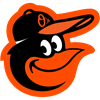I'm a lazy person. No one ever believes this is the case, but it is. People look at me and see a single mother of two very busy boys, a full-time faculty member at a good university, a fantasy sports nut who spends a lot of time researching, playing, and writing. My friends would tell you I'm never too tired to go out or to have an impromptu party at my house. Being adventurous, generous, and a bit hedonistic is how I live, it's true, and from the outside that appears anything but lazy.
At my family's weekly Sunday dinners, the kids clear the dishes. One kid will carry one plate at a time, as slow as he can, hoping that he won't have to do too much. That's a form of laziness, I suppose, but he ends up making a lot of trips back and forth. Another one attempts to stack and carry as many dishes in one trip as possible. One and done. That's the kind of kid I was. I'm sure it's why I was such a good waitress in college. When I go on a run of errands, my route is the epitome of perfection, no wasted turns or backtracking for me. See, in my mind, lazy and efficient are two sides of the same coin. I can get so much done because I do things the easiest way possible.
When it comes to daily fantasy sports, you know research is a must. Given all the
I'm a lazy person. No one ever believes this is the case, but it is. People look at me and see a single mother of two very busy boys, a full-time faculty member at a good university, a fantasy sports nut who spends a lot of time researching, playing, and writing. My friends would tell you I'm never too tired to go out or to have an impromptu party at my house. Being adventurous, generous, and a bit hedonistic is how I live, it's true, and from the outside that appears anything but lazy.
At my family's weekly Sunday dinners, the kids clear the dishes. One kid will carry one plate at a time, as slow as he can, hoping that he won't have to do too much. That's a form of laziness, I suppose, but he ends up making a lot of trips back and forth. Another one attempts to stack and carry as many dishes in one trip as possible. One and done. That's the kind of kid I was. I'm sure it's why I was such a good waitress in college. When I go on a run of errands, my route is the epitome of perfection, no wasted turns or backtracking for me. See, in my mind, lazy and efficient are two sides of the same coin. I can get so much done because I do things the easiest way possible.
When it comes to daily fantasy sports, you know research is a must. Given all the other important things in my life, I want my research to be as efficient as possible. I want to be lazy. I've played DFS for years, but this is my first year playing MLB in earnest, so I've kind of been wading through all the approaches I see out there for picking players hoping to hit upon a strategy that works reliably for me. I'm not one to simply use other people's "optimal" lineups. I therefore have to balance this need to figure it all out myself with my lazy personality.
Using the information Vegas provides is easily the best shortcut there is, but unless you're digging deep into the player prop bets, it can be hard to get clear insight on specific players. I've been keeping a little daily fantasy MLB diary where I detail the thought processes I use to pick players every Wednesday, then recap those strategies every Thursday. My strategy relies heavily on the Vegas lines (teams to target versus bad pitchers, high o/u, etc.), secondarily on my general knowledge of players' skills, and thirdly on position in lineup/handedness. If you'd like to read my diary entries, follow me on Twitter. I tweet them all out.
I make a point to do my own research, which comes down to a lot of game logs and sortable stats tables, before reading any expert picks for the day. I'm pleased in general with how often the guys I arrive at are mentioned in those kinds of articles. What my research has left out, because I'm lazy of course, is an analysis or consideration of batters versus lefty/righty pitchers.
As far as I can tell, pretty much every article starts off with Buster Posey mashes lefties. Apparently, Buster Posey used to be the world's best batter against lefties. Now, I'm being a little facetious...the numbers totally support that. Posey is a career .375 average vL and a bunch of other impressive stats. But if I hear that line again, I may do more than just scowl at my computer screen. Because Posey has not mashed lefties in 2014. I've gotten burned a couple times paying for the most expensive catcher on the board to go 0-for-4. So, is Posey's uncharacteristic non-lefty-mashing start to this season an anomaly?
Baseball is such a long season that this becomes perhaps a difficult question to answer. The goal in DFS is to know who the best batters are going to be at every position on any one given night. Using a player's career performance against a certain handed pitcher is a popular way to predict a good play, according to expert pick articles. So, based on the glaring Posey exception, I decided to ask whether past performance versus L or R pitchers was predictive of current performance. In my analysis, I ranked the top batters by average versus lefty and righty pitchers (highest batting average = 1, and lowest ~150, minimum 50 plate appearances in 2013, 10 PA in 2014).
My expectation was not that a player would retain the exact same rank from last year to this, but that he would rank in the same tier. I expected a weak, but detectable correlation between last year's performance and this year's versus the same handed pitcher (a line with a positive slope). Below are those graphs.
As you can see, there is no such correlation, weak or strong (Rsquared= 0.01 for LHP and 0.03 for RHP). Some players that ranked in the top 150 in 2013 are hurt or just not ranked in 2014. They were excluded from this analysis. Let's consider poor Buster Posey, the 17th ranked batting avg vL last year (.320). This year, Posey is ranked 121st with a .233 avg (he's ranked 83rd vL on wOBA which is .349). Catchers ranked higher on both stats vL include one my favorite daily plays, Derek Norris (25th in avg), Mike Zunino (45th), Brian McCann (60th), and Jonathan Lucroy (64th). I don't have to tell you that all these guys are thousands of dollars cheaper than Posey on most DFS sites. I've singled out one player here, but you can see from the graph that top performers, say top 30 last year, are pretty much equally likely to fall anywhere along the Y-axis in 2014.To me, this makes using a players' past performance versus a left or right handed pitcher a questionable tactic in picking players for my DFS lineup.
Since I think this is an unpopular opinion, I've tried to come up with a couple rebuttal explanations. First, 2014 is a young season. These players will regress to their previous norms. David Ortiz, Allen Craig, Adam Jones, and Miguel Cabrera will make their way back to the top, and Dayan Viciedo, Matt Wieters, and Alexei Ramirez will fall from the top of their righty-mashing ranks by year's end. I will do the analysis again in September, I promise. However, what we are trying to do is predict a single night's performance, not a month's, not a season's. That's a much more difficult task, one that I can't see being accomplished by simply weighting past performance versus L/R very heavily. Perhaps there are additional conditions that must be met, conditions that allow for such reliably excellent performance that the entire average is raised by them. Perhaps some combination of position in lineup, home versus away, hitter versus pitcher park, AND facing a lefty is predictive. The regression argument is fine if you want to use this statistic to predict season long performance, but I don't buy it for daily.
A second rebuttal to my simplistic rejection of this BvL/R projection is that April is not representative. The weather is still a mess for a lot of the country, temps are cold, blah blah. We were trying to predict April because we played DFS in April. Even if overall averages are down (they're not, the leading qualified BvL was over .500 and BvR was over .380 as of May 1, 2014), we'd expect the trend to hold. That's the reason I ranked them, to account for absolute or global differences in batting average.
Perhaps batting average isn't the right stat to rank on. I didn't do the entire correlation for everyone, but picked on a few of last year's top guys and found that their ISO and wOBA didn't correlate any better between last year and this spring.
To be perfectly clear, this question doesn't involve a player's L/R splits. That might matter for your seasonal league, whether you sit or start a guy, but in DFS, the only thing that matters is if he has a good average against the handed pitcher he's facing tonight. I don't care if a guy is much better hitting righties than lefties, I care if he is good versus righties. It doesn't really matter how he hits against the opposite. Unless, I suppose, if you expect the SP to be done very quickly and the bullpen is the opposite. Posey, for the record, was batting .260 vR as of May 1.
Being lazy, maybe I should be relieved that this kind of daily historical BvL/R analysis may not yield the kind of shortcut to success that I'm after. Yet the fact that it is emphasized around all the MLB DFS circles and sites makes me think I'm missing something. See, I'll do hard work if it's necessary for success, but why not just use this season's data to see who has ACTUALLY been mashing lefties. It should be noted that my "what have you done for me lately?" attitude is another one of my (very few) character flaws-or so I'm told...I kinda like it.
We often hear about sample size, with bigger always being better. Our intuition is that more data must sharpen predictions. A colleague of mine just wrote an excellent piece on why more data does not increase accuracy in data-driven fantasy football prediction models. It's the quality of the data and the weight of the different variables that matters most, using more data increases your confidence in the prediction but not its accuracy. So, please tell me, if a player's historical batting average versus LHP can't predict his average performance over a month, how is it going to predict his performance in a single night? I'll ask again, what am I missing? With so many stats now available, I think we have to remember that we're not obligated to use them all. Having access to the wealth of data that we do should make us even more rigorous in only selecting those that are proven to be predictive.
Footnote: After Posey's terrific week at the plate, he is now batting .286 vL and .296 vR. His ranks, as of May 6, 2014 are 78th vL and 50th vR.

































